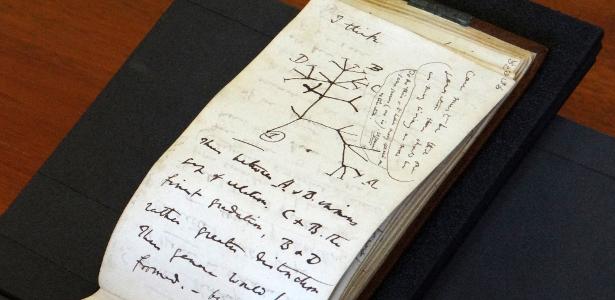Darwin’s notebooks reappear in England after a 20-year disappearance
2 min read
Charles Darwin’s two precious notebooks lost more than 20 years ago from Britain’s University of Cambridge and considered stolen, mysteriously appeared in a gift bag deposited in the library with a greeting card.
One of them contains a diagram of the “tree of life”, which became a symbol of the theory of evolution of the English naturalist.
In a statement issued on Tuesday, the library said the notebooks had been “returned in good condition to the University of Cambridge Library after more than two decades of disappearance”.
Both were handed unidentified on March 9, 2022, in a pink bag and card in an envelope, wishing a “Happy Easter” to librarians.
“I am very relieved to hear that the books are in good condition,” said Jessica Gardner, director of library services.
He added, “Like so many other people around the world, I was deeply saddened by his loss. The joy of his return is immense.”
In November 2020, Gardner launched a broad appeal to find the notebooks, “likely stolen”, valued at millions of pounds.
Local police were notified, and the notebooks were added to the INTERPOL database of stolen artworks.
The two notebooks were removed from the room, where the library’s most important works were kept, to be photographed in September 2000. On a routine inspection in January 2001 it was found that the small box containing them, the size of a pocketbook, was no longer in place.
For many years, librarians believed that the notebooks were placed elsewhere in the library, which holds about 10 million books, maps, manuscripts, and other things.
The works of Charles Darwin (1809-1882), the father of the theory of evolution, made it possible to understand that man was neither at the center of life nor at its head.
The two found notes will be presented to the public mid-year as part of an exhibition in Cambridge dedicated to the world.

“Devoted food specialist. General alcohol fanatic. Amateur explorer. Infuriatingly humble social media scholar. Analyst.”





